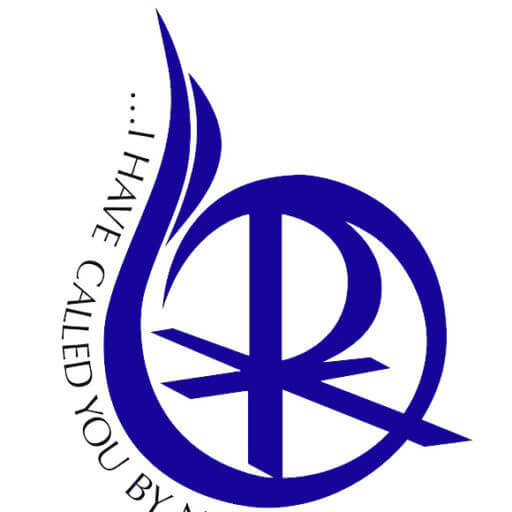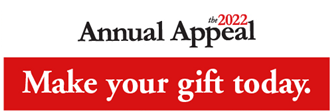Shortcode
End shortcode

Women’s Cornerstone
Daily Rosary | Divine Mercy Chaplet | Eucharistic Adoration | Stations of the Cross

Men’s Cornerstone

Parish Picnic

Bereavement Ministry

Parish Picnic

Parish Picnic

Red Sample

Parish Picnic
Ed. Ginter
Spring Concert | Christmas Concert | Presentation MTV |
Piano Men

Parish Picnic
NOTICE FROM FR. BOB AND PRESENTATION STAFF ON CHURCH RE-OPENING
This week, the Archdiocese has offered parishes the opportunity for parishioners to enter the church for private prayer beginning on May 17, subject to strict guidelines and protocols. While we miss you all very much, we are greatly concerned about the health and safety of our parishioners. In consultation with our staff, we unanimously agreed that opening our church at this time, when our Governors have continued stay at home recommendations, would put too many people at risk. We do not have the resources on hand yet (i.e. hand sanitizers) to provide healthy indoor protocols at this time.
During the course of the many long weeks of the Coronavirus pandemic, we have seen many families take advantage of the numerous ways you can use our parish campus to help you find comfort in prayer and want to remind you of the many opportunities available to you.
- We have a beautiful labyrinth on our property which offers an ancient practice for spiritual centering, contemplation and prayer.
- The Eucharist is present in our tabernacle and available for prayer from outside. This gives us an opportunity for the prayer of adoration of our gracious Lord.
- Mary’s Grotto is located in front of the southern cross window, with places to sit and pray to our Blessed Mother to strengthen those who are discouraged, comfort those who are sorrowful and intercede in prayers for our families.
- In the rear of the church building, we have a stairway to a path up the hill behind the soccer field, to pray the stations of the cross. This is a powerful way to contemplate and enter into the mystery of Jesus’ gift of himself to us.
- At the top of this walkway is a grotto to St. Francis. Here we can pray to the patron saint of Catholic Action and care for creation. St. Francis’ prayer for peace is comforting and encouraging during this challenging period.
Rest assured that we are doing all we can to prepare for re-opening our church when it is safe for all of us. We are resourcing wipes and are on a long waiting list for sanitizers.
In the meantime, we join you in online prayer each day:
- at our 9AM Daily Mass with Fr. JC,
- our Weekend Mass with both of our priests,
- our Daily Reflection with Fr. Bob
- and with daily praying the Divine Mercy Chaplet and 7:30PM Rosary LIVE! with Therese.
While the church is not opened yet, we are reaching out and calling all of our parishioners to check up on you. We have volunteers to help anyone with a need for someone to pick up shopping or medications. You have been very generous in keeping our food pantry stocked. It is being used by families in need and we are contributing to our soup kitchens in Harlem and Newark.
God bless you all and keep you safe and healthy,
Fr. Bob and the Presentation parish staff
Statement of Cardinal Joseph W. Tobin, C.Ss.R. on the death of George Floyd and the national protests
The people of the Roman Catholic Archdiocese of Newark join with Catholic dioceses across the United States as well as all people of good will in condemning the senseless and brutal murder of George Floyd in Minneapolis on May 25. We extend our deep sorrow to his family and friends, who face soul-sapping grief because of his terrible death.
We offer heartfelt prayer for the people of Minneapolis and St. Paul, expressing special solidarity with our beloved brother, Archbishop Bernard Hebda and the people he serves.
The murder of George Floyd, which is simply the latest instance of a person of color dying at the hands of those sworn to protect the community, has provoked justified anger and peaceful protest across the United States. Rage, as well as shameful exploitation of this tragedy, have spawned
inexcusable violence in cities throughout this nation. As we witness the asphyxiation of our country, many of us cry in anguish: why?
How we answer the question is crucial because we will then know what to pray for and how we must act. No one comes to Jesus with the lame request of wanting to feel better. They name the evil and ask for relief. We need to turn to the Lord of the Universe, for the malice we name cannot be eradicated by our unaided efforts.
The necessity of naming the evil of racism humiliates us, since so many events in our lifetime, let alone the history of our nation, have compelled us to shamefully recognize the national sin that obliges African Americans to endure unique and relentless humiliation, indignity, and unequal opportunity. Our tolerance of racism as well as collective deafness to the cry of those so grievously offended and the conscious and unconscionable promotion of divisions in this nation has encouraged the heinous evil of racism to propagate.
Certainly, tolerance of tribalistic factions in the United States, especially in our political forum, promotes a savage law of the jungle and an immoral ethos of “might makes right”. Violent rhetoric, selfishness and even the crude appropriation of religious symbols conspire to produce a malevolent miasma in which the sin of racism may flourish unchecked. Our society will make no progress in addressing the evil of racism without the will to leave behind the purveyors of polarization.
The Archdiocese of Newark must renew our commitment to making the dream of peace built on justice and racial equality a reality for all our sisters and brothers, here in northern New Jersey as well as throughout the United States. Since this is our goal, we embrace gratefully the prophetic
words of the Reverend Martin Luther King, Jr., “Darkness cannot drive out darkness; only light can do that. Hate cannot drive out hate; only love can do that.”
In great sorrow, but also with profound hope, we turn to the Blessed Virgin Mary, Mother of the Church, and ask for her protection and care during these troubled times. This young woman sang of One whose mercy is from age to age to those who fear him…who has shown might with his arm, dispersed the arrogant of mind and heart… who has thrown down the rulers from their thrones, but lifted up the lowly (Luke 1, 50-52). May she inspire us with courage to do the work of justice and to eliminate—once and for all—all hatred, bigotry and violence from our hearts, our homes and our communities.
Cardinal Joseph W. Tobin, C.Ss.R.
For more information about this topic,
click here for our Justice & Peace Ministry Page.
Summer Living Room Film Festival 2020 | The Chosen, Final Episode is Sept. 2
We are showing “The Chosen,” an 8-episode series, on Wednesdays at 7:30pm through September 2. All men and women are invited to join us each week for a viewing of an episode followed by group discussion. Please register below in order to receive the Zoom link.

Online Mass /
Mass Schedule
Sunday Mass
Saturday 5pm (also live-streamed)
Sunday 7:30am, 8:30am, 10:00am, 11:30am & 6:30pm
Daily Mass (click here to view)
Mon. – Sat. 9:00am (also live-streamed)
Parish News & Events
Please read about all of our upcoming events in the weekly bulletin.







